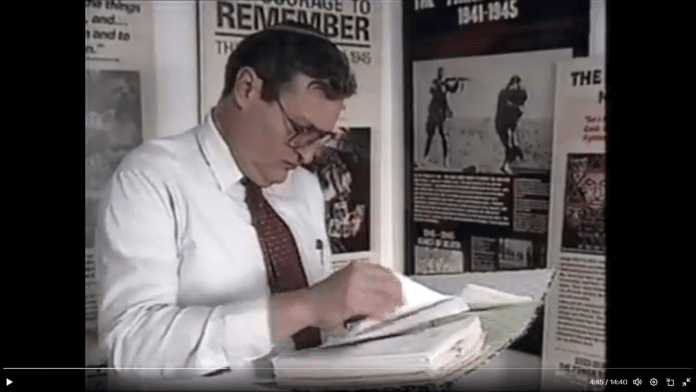Canada is known for its reputation as a diverse and welcoming nation but it has a complex history when it comes to the issue of Nazi war criminals seeking refuge within its borders after World War II. While Canada has traditionally been seen as a safe haven for refugees, it has also faced criticism for its handling of individuals accused of committing atrocities during the Holocaust and World War II. This article explores Canada’s response to Nazi war criminals, examining the factors that shaped its policies, the controversies surrounding its actions and the efforts made in recent years to address this dark chapter in the country’s history.
Factors Influencing Canada’s Response
Several factors played a significant role in Canada’s response to Nazi war criminals:
- Immigration Policy: In the aftermath of World War II, Canada, like many other Western countries, was grappling with its immigration policies. The country was cautious about admitting large numbers of refugees, partly due to economic concerns and security fears during the early years of the Cold War.
- Political Climate: The political climate in Canada during the post-war period was marked by anti-communism and the fear of espionage. This atmosphere influenced decisions regarding immigration and refugee resettlement.
- Limited Information: In many cases, Canadian immigration officials had limited information about the backgrounds of individuals seeking entry into the country. This lack of information made it challenging to screen out potential war criminals.
The Dark Secret revealed
In my latest, I cite this 1997 60 Minutes special, "Canada's Dark Secret," which exposed Ottawa's post-war policy of welcoming Nazi SS veterans
— Max Blumenthal (@MaxBlumenthal) September 27, 2023
A historian recalls how Pierre Trudeau told him his gov't hid the Nazi criminals, and documents how Ukrainian and Baltic immigrants… pic.twitter.com/ZC6kefgOLN
Controversies and Criticisms
Canada’s response to Nazi war criminals has been the subject of controversy and criticism for several reasons:
- Admission of War Criminals: Canada admitted several individuals who were later found to have committed war crimes or participated in Nazi atrocities. The most notable case is that of Arthur Topham, who was a member of the SS and settled in Canada after the war. His presence raised questions about the adequacy of screening procedures.
- Lack of Prosecution: Many war criminals who settled in Canada were not brought to justice. This was due, in part, to the lack of evidence and legal challenges in prosecuting crimes that occurred overseas.
- Deportation Difficulties: Some Nazi war criminals who had already immigrated to Canada could not be easily deported due to legal and logistical challenges, leading to protracted legal battles.
- Public Outcry: As information about the presence of Nazi war criminals in Canada became public, there was widespread public outcry and demands for justice. These calls put pressure on the Canadian government to address the issue.
Recent Efforts to Address the Issue
In recent years, Canada has taken steps to address the presence of Nazi war criminals and their legacy:
- Legal Actions: Canada has made efforts to prosecute individuals accused of war crimes in Canadian courts. The Deschenes Commission, established in 1985, was a significant step in investigating war criminals in Canada and led to several individuals being stripped of their citizenship or deported.
- Public Awareness: Increased public awareness of the issue has led to greater scrutiny and pressure on the government to act. Organizations and activists have worked to uncover and document the history of Nazi war criminals in Canada.
- Historical Research: Historians and researchers have conducted extensive investigations into the history of Nazi war criminals in Canada, shedding light on the extent of the problem.
2023
Anyone who may have thought that decades of activism and political lip service had achieved very much, on the topic of Nazis in Canada, would thus have been very disappointed this week when Ukraine’s president Zelensky was invited to address their parliament and this happened.
Both Canada and Ukraine have a long way to go in their fight against Nazism and the extreme right of politics shaping their decision-making, it appears. The Second World War was supposed to have defeated fascism but in reality it appears to have legitimised it within societal structures.
Douglas James
If you would like your interests… published, submit via https://dorseteye.com/submit-a-report/
Join us in helping to bring reality and decency back by SUBSCRIBING to our Youtube channel: https://www.youtube.com/channel/UCQ1Ll1ylCg8U19AhNl-NoTg and SUPPORTING US where you can: Award Winning Independent Citizen Media Needs Your Help. PLEASE SUPPORT US FOR JUST £2 A MONTH https://dorseteye.com/donate/







